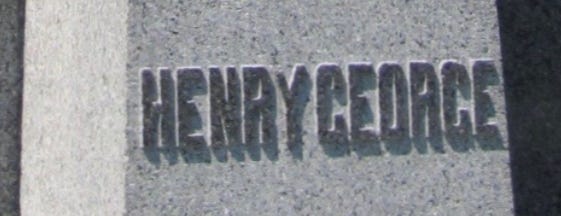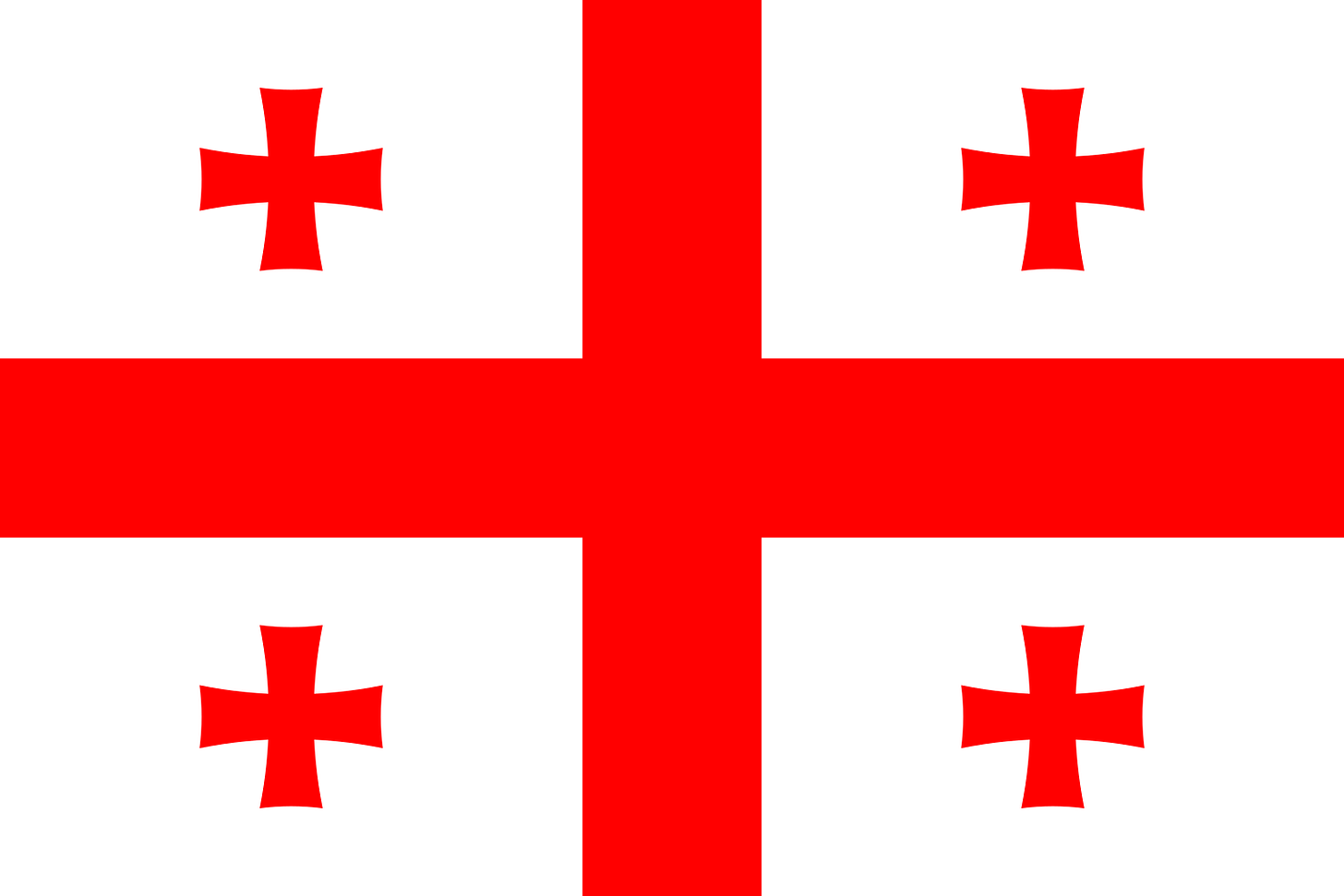Georgism: What's in a Name?
Comparing Georgism, Geoism, and Geo(rg)ism — a Plot Twist!
[Edited on 2024-05-09: Fixed a typo.]
For those who dislike using the term “Georgism” to refer to the philosophy outlined in Progress and Poverty because it was named after a dude (its author) … there’s a plot twist I hope all will enjoy!
Some modern proponents are dissatisfied with the name Georgist. While Henry George was well known throughout his life, he has been largely forgotten by the public and the idea of a single tax of land predates him. Some now prefer the term geoism, with the meaning of geo (from Greek γῆ gē "earth, land", as incidentally is in Greek the first compound of the name George (whence Georgism) < (Gr.) Geōrgios < geōrgos "farmer" or geōrgia "agriculture, farming" < gē + ergon "work") deliberately ambiguous.1
gē = land
ergon/ergos = work/labor2
(as in “ergonomics”, “energy”, and “homo ergaster”3)
often seen as “ourgos”4
(as in “demiurge”, “thaumaturge”, “metallurgy”, “surgery”, etc.)
Freeing Land + Freeing Labor = Freeing George!
George was named after his philosophy, not the other way around. 🤓
(Smells like destiny!)
Geoism may symbolically imply focusing on land instead of labor. In recent practice, it seems like self-identified Geoists are striving to make this an even bigger tent than Georgism already is — like a giant club for friends of LVT. I still enjoy giving these folks a tough time though. (Don’t worry, it’s all love.)
Geo(rg)ism may symbolically imply prioritizing land over labor. In recent practice, it seems like nobody really uses this except me, so until others start using it, I guess it means whatever I use it for. Currently, I am using it subtly to keep Georgists and Geoists united. Our differences are not so great — only two letters — using parentheticals to keep us humble.
Georgism may symbolically imply prioritizing land for labor. I really do prefer labor being at the center of this — both figuratively in the movement and literally in the word. 😉 (Geoists: Don’t forget about the workers! Labor matters too!)
Georgic = agricultural5
(usually in the context of describing literature)
Perhaps we could say that T. Paine’s “Agrarian Justice” might’ve just as easily been “Georgic Justice” — not to be confused with "Georgian” which is a demonym for people from Georgia (either the country or the state).
And what of Henry?
from French Henri, from Late Latin Henricus, from German Heinrich, from Old High German Heimerich, literally "the ruler of the house," from heim "home" (see home (n.)) + rihhi "ruler" (from PIE root *reg- "move in a straight line," with derivatives meaning "to direct in a straight line," thus "to lead, rule"). One of the most popular Norman names after the Conquest. Related: Henrician.6
heim = home
rihhi = ruler or leader … to direct or move in a straight line
Therefore, Henry George was the head-of-household in the great land-and-labor combo pack — lead the charge!
So the next time someone tries to make a big deal about what we should be calling ourselves, you can tell them that “it was all meant to be” and they can relax.
After all, it’s not a name issue, it’s a skill issue.
We have to focus on getting good. 💪🏻
The short section above was the main point of this article. The rest is just fun trivia.
Other Orthogonal Oddities
There was little known about the real Saint George7, but allegedly he was a soldier who was martyred for failing to renounce his faith, which at some future moment caused tens of thousands of people to convert to his faith. (Human psychology is fascinating … and we should be diligently taking notes about what causes the self-preservation instinct to stop.) Later embellishments upgraded St. George to a dragoon complete with a lance named Ascalon, who saved a princess (damsel) from ritual sacrifice and donated the king’s reward to the poor. In another version, George was killed by King Mosul and resurrected a few times, complete with the imagery often associated with such tales at the time (i.e. response by the weather, magical abilities, etc.). Maybe he was an ancient version of Deadpool or some other oft-resurrected character in an ancient version of the Marvel Universe. His popularity carried through to the crusades, where the red cross on a white field came to symbolize chivalrousness and was worn to invoke his protection. As knights charged into battle, they mustered confidence and determination by shouting, “By George!”8 (or some variation of this).
But the more interesting part was the big tent energy of western faiths — Jews, Christians, and Muslims all gathering at the Saint George shrine (now chapel) at Beit Jala (Bayt Jala) outside al-Khader (named after George), which is outside Bethlehem, which is outside Jerusalem:
When he visited the shrine in the late 1990s, the writer William Dalyrymple found that while Jews had largely stopped using the place, Muslims still came regularly to this Christian shrine, leaving prayer mats and other offerings for the saint whom they call Khadr, “the Green One.”9
Recent conflicts may lead us to believe that practitioners of such religions may never be able to coexist peacefully. George shows us that this view cannot be universally true because they had long gathered under his roof in peace.
Georgists proudly welcome you!
Scholarly Community Encyclopedia: https://encyclopedia.pub/entry/33466
(Which is pretty much the same as the Wikipedia article: https://en.wikipedia.org/wiki/Georgism#Synonyms_and_variants)





Awesome take.
This actually has significantly calmed my uneasyness about naming the whole philosophy after a single dude.
In biology/health I despise it when I have to remember a person's name to correctly identify a piece of anatomy or disease. I would much rather learn some etymology and help connect the new knowledge thematically (i.e. hyperaldosteronism vs Conn's disease).
i will follow george unto the ends of the geo